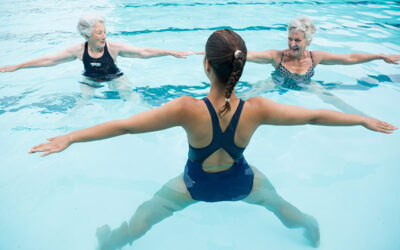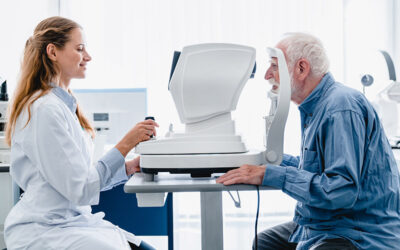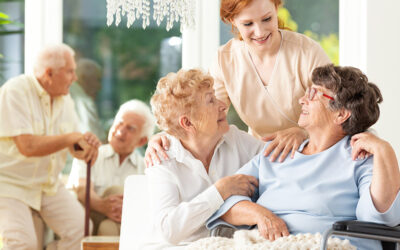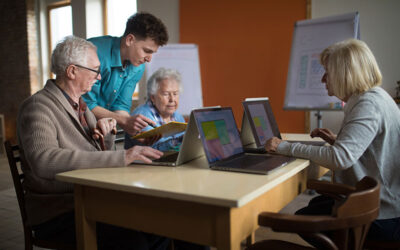Our Blog
How to Pay for In-Home Senior Care: 6 Realistic Options
Tel: (877) 777-1817info@RightHandCare.comHow to Pay for In-Home Senior Care: 6 Realistic OptionsWhen a loved one begins to struggle with daily tasks and can no longer care for themselves independently, it usually falls on their family members to find solutions. Many...
Water Workouts for Seniors: A Fun and Effective Way to Stay Fit
Tel: (877) 777-1817info@RightHandCare.comWater Workouts for Seniors: A Fun and Effective Way to Stay FitWe’ve reached peak summertime temperatures, and it’s the perfect time to cool off in the pool — and get a workout in while you’re there! Water workouts are an...
Services That Support Seniors as They Age in Place
Tel: (877) 777-1817info@RightHandCare.comServices That Support Seniors as They Age in PlaceAround 77% of adults over 50 want to “age in place” and remain in their homes as they get older, rather than go to an assisted living facility or nursing home. There are plenty...
Fit at Any Age: A Senior’s Guide to Safe and Effective Exercise
Tel: (877) 777-1817info@RightHandCare.comFit at Any Age: A Senior’s Guide to Safe and Effective ExerciseThe U.S. Centers for Disease Control (CDC) recommends that adults aged 65 and older get at least two and half hours of moderate exercise each week, which comes out...
Celebrating National Eye Exam Month With Essential Eye Care Tips for Seniors
Tel: (877) 777-1817info@RightHandCare.comCelebrating National Eye Exam Month With Essential Eye Care Tips for SeniorsAugust is National Eye Exam Month, so it’s a great time to talk about the importance of eye health, especially for our senior loved ones. Vision...
The Best Senior Discounts for Big Savings
Tel: (877) 777-1817info@RightHandCare.comThe Best Senior Discounts for Big SavingsWith age comes wisdom—and some pretty nice discounts! So, if the sheer number of candles on your birthday cake tends to set off the smoke detectors, go ahead and comfort yourself with...
How to Find a Safe Senior Care Facility or Nursing Home
Tel: (877) 777-1817info@RightHandCare.comHow to Find a Safe Senior Care Facility or Nursing HomeWith so many reports of abuse and neglect in long-term care facilities, family members are often hesitant to place their loved ones in facilities where they can get the...
12 Tips for Safe Family Travel with Seniors
Tel: (877) 777-1817info@RightHandCare.com12 Tips for Safe Family Travel with SeniorsIt’s the peak time of year for family vacations—a great time to make lifelong memories with your senior loved ones. While they may not be up for a trip to Disneyland, there are plenty...
What to Do When Your Senior Loved One Is a Hoarder
Tel: (877) 777-1817info@RightHandCare.comWhat to Do When Your Senior Loved One Is a HoarderHoarding behavior is the excessive collection of items, even if those items are worthless, hazardous, or unsanitary, and it can be particularly challenging to address when it...
Summer Fun for All Ages: Activities for the Whole Family
Tel: (877) 777-1817info@RightHandCare.comSummer Fun for All Ages: Activities for the Whole FamilyThe days are long, the weather’s warm, and the kids are out of school. It’s the perfect time for some fun family activities — seniors included! Activities that bring the...
Understanding Power of Attorney: A Guide for Caregivers and Families
Tel: (877) 777-1817info@RightHandCare.comUnderstanding Power of Attorney: A Guide for Caregivers and FamiliesIf your senior loved one is no longer capable of making sound decisions on their own, it may be time to consider obtaining a power of attorney (POA). This...
How to Create a Memory Box for Seniors with Dementia
Tel: (877) 777-1817info@RightHandCare.comHow to Create a Memory Box for Seniors with DementiaFor seniors living with Alzheimer’s or dementia, memory boxes are a poignant and practical tool to remind them of happier times. These personalized boxes are filled with...
Balancing Autonomy and Effective Caregiving for Ethical Senior Care
Tel: (877) 777-1817info@RightHandCare.comBalancing Autonomy and Effective Caregiving for Ethical Senior CareIf you’re caring for a senior loved one, you know how difficult it can sometimes be to provide effective care while also respecting their personal autonomy and...
The Impact of Social Media on Seniors: Pros and Cons
Tel: (877) 777-1817info@RightHandCare.comThe Impact of Social Media on Seniors: Pros and ConsIt feels like social media is everywhere nowadays — and everyone, young and old, is on it. Social media lets us meet and connect with new people, keep up with friends and...
Building Relationships that Bridge the Generational Gap
Tel: (877) 777-1817info@RightHandCare.comBuilding Relationships that Bridge the Generational GapSus . . . rizz . . . bet? It may feel like Gen Z and Alpha kids are speaking a whole different language. But let’s be honest — our elders felt the same way about words like...
The Importance of Cultural Sensitivity in Senior Care
Tel: (877) 777-1817info@RightHandCare.comThe Importance of Cultural Sensitivity in Senior CareAs our society grows increasingly diverse, cultural sensitivity in senior care has become a vital part of compassionate caregiving. Understanding and respecting seniors’...
Why Seniors Should Never Stop Learning
Tel: (877) 777-1817info@RightHandCare.comWhy Seniors Should Never Stop LearningLearning isn’t just for the kids — if anything, retirement is the perfect time to explore new interests and hobbies. Your senior years offer so much freedom to grow, explore, and keep that...
How Outdoor Activities Can Benefit Seniors’ Health
Tel: (877) 777-1817info@RightHandCare.comHow Outdoor Activities Can Benefit Seniors’ HealthHave you ever wondered why a stroll in the park is so refreshing or why gardening feels so fulfilling? Getting out of the house and into nature can improve our moods, revitalize...
Senior Allergy Management: Tips & Treatments for a Comfortable Season
Tel: (877) 777-1817info@RightHandCare.comSenior Allergy Management: Tips & Treatments for a Comfortable SeasonSneezes, sniffles, pollen-covered cars — allergy season is back with its usual discomforts. This time of year can be especially tough on seniors, whose bodies...
Financial Planning for Long-Term Care
Tel: (877) 777-1817info@RightHandCare.comFinancial Planning for Long-Term CareWhen it comes to financial planning, long-term care often takes a back seat to more immediate concerns like retirement savings, mortgages, and daily expenses. However, the reality is that...

We are Superheroes in Comfortable Clothes™
We take care of our clients, their families, our staff, and our league of franchise owners.




















